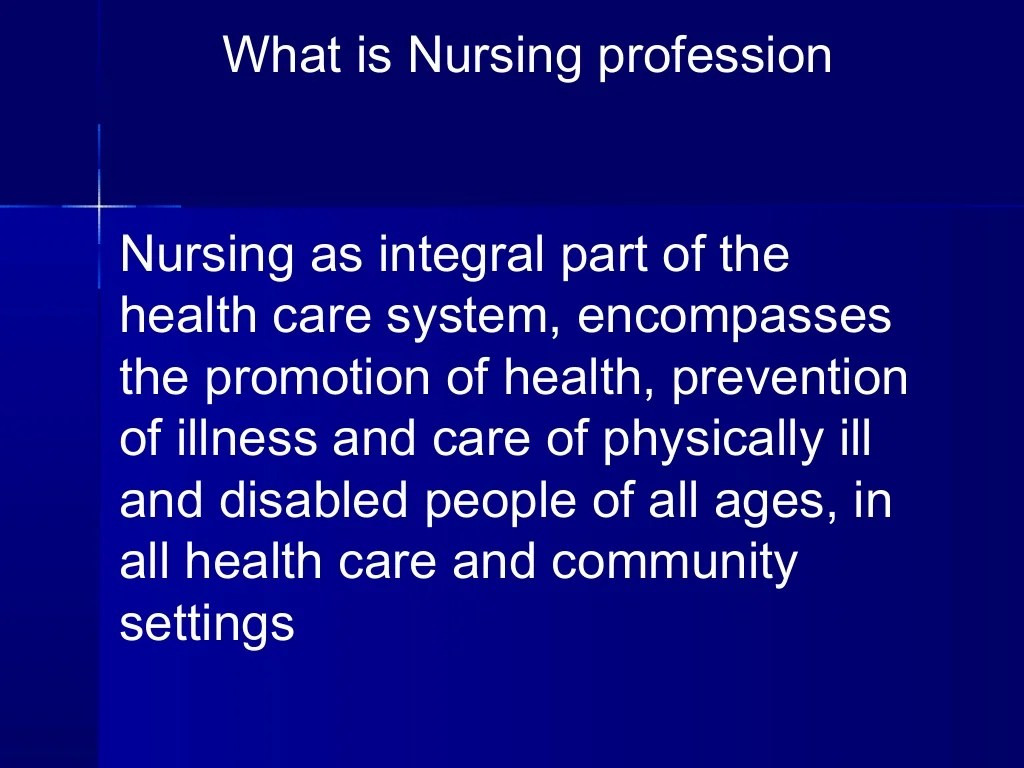Which characteristic indicates that nursing is a profession? Nursing is a respected and trusted profession that plays a vital role in healthcare. It is a profession that requires specialized knowledge, autonomy, ethical guidelines, and social recognition. These characteristics distinguish nursing from other occupations and highlight its importance in society.
This article will explore the characteristics that define nursing as a profession, providing a comprehensive overview of the unique attributes that set nurses apart and contribute to the high regard in which they are held.
Definition of a Profession: Which Characteristic Indicates That Nursing Is A Profession

A profession is a specialized occupation that requires advanced knowledge, skills, and training, and is governed by a set of ethical guidelines. Professionals are expected to exercise autonomy and accountability in their work, and to maintain a high level of social recognition and trust.
Characteristics of a Profession
- Specialized knowledge and education
- Autonomy and accountability
- Ethical guidelines and standards
- Social recognition and trust
Specialized Knowledge and Education

Nurses possess a unique body of knowledge that includes clinical skills, theoretical understanding, and research findings. They are required to complete a rigorous educational program that includes both academic coursework and clinical experience.
Educational Requirements for Nurses, Which characteristic indicates that nursing is a profession
- Associate degree in nursing (ADN)
- Bachelor of Science in nursing (BSN)
- Master of Science in nursing (MSN)
- Doctor of Nursing Practice (DNP)
Autonomy and Accountability

Nurses have the autonomy to make decisions about patient care, and they are accountable for the consequences of their actions. They are responsible for assessing patients, developing care plans, and implementing interventions.
Accountability in Nursing
Nurses are accountable to their patients, their colleagues, and the public. They must maintain a high level of ethical conduct and practice within the scope of their license.
Ethical Guidelines and Standards
Nursing practice is guided by a set of ethical principles that include patient autonomy, beneficence, non-maleficence, and justice. These principles help nurses to make decisions that are in the best interests of their patients.
Ethical Principles in Nursing
- Patient autonomy: The right of patients to make decisions about their own care.
- Beneficence: The duty to do good and prevent harm.
- Non-maleficence: The duty to avoid causing harm.
- Justice: The duty to treat all patients fairly and equitably.
Social Recognition and Trust
Nursing is a trusted and respected profession. Nurses are seen as compassionate, caring, and competent professionals who are dedicated to providing quality patient care.
Recognition of Nursing
Nurses have earned the respect of the public through their dedication to patient care and their advocacy for health. They are recognized for their knowledge, skills, and compassion.
Expert Answers
What is the most important characteristic of a profession?
Specialized knowledge is the most important characteristic of a profession. It is the unique body of knowledge that nurses possess that sets them apart from other occupations and allows them to provide high-quality patient care.
How does autonomy contribute to the professional status of nursing?
Autonomy allows nurses to make independent decisions about patient care, which contributes to their professional status. It demonstrates their ability to think critically, solve problems, and take responsibility for their actions.
Why are ethical guidelines important in nursing?
Ethical guidelines are important in nursing because they help nurses to make decisions that are in the best interests of their patients. They provide a framework for nurses to follow when faced with ethical dilemmas.
How does social recognition contribute to the status of nursing as a profession?
Social recognition contributes to the status of nursing as a profession by demonstrating the value that society places on the work of nurses. It is a reflection of the trust and respect that the public has for nurses and their ability to provide high-quality patient care.